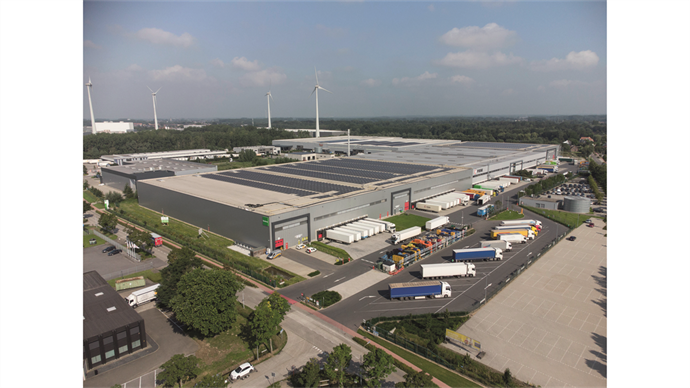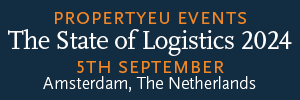The European business of global industrial property group Goodman has become the first major logistics developer to have its scope 1, 2 and 3 emission reduction targets approved by the Science Based Targets initiative (SBTi) in line with a 1.5°C trajectory.
An international partnership between the Carbon Disclosure Project, the United Nations Global Compact, World Resources Institute and the World Wide Fund for Nature, the SBTi aims to drive ambitious climate action across the private sector by enabling companies to measure, set, achieve and reset emission reduction targets aligned with the latest science.
Goodman is one of more than 2,000 organisations committed to science-based targets through the SBTi. Yet, while there are over 1,000 approved targets to date, Goodman Europe is the first industrial real estate developer to secure approval for its scope 1, 2 and 3 commitments in line with a 1.5°C future.
Addressing the challenge
With operations across Europe, Asia Pacific and the Americas, Goodman takes a global approach to sustainability. The Group’s 2030 sustainability strategy, commitment to science-based targets and short and long-term goals are based on global challenges and material ESG issues. Carbon is one part of this. The wider sustainability picture includes the location of its buildings, introducing circularity into its developments, improving biodiversity, while creating human-friendly environments for its customers.
Goodman Europe’s approved SBTi commitments are set against three scopes from a 2019 base year in-line with a 1.5°C trajectory. Scope 1 and 2 emissions are common across the sector, relating to an organisation’s own operations such as employee travel and office energy consumption. Goodman aims to reduce these by 70 per cent by 2030.
Less common, and more challenging by their nature, are scope 3 emissions. These are linked to embodied carbon associated with construction activity, as well as energy performance of a property company’s let and sold portfolio. Goodman Europe seeks to reduce these by 55 per cent by 2030.
A roadmap to a 1.5°c future
Goodman’s approach to sustainability focuses on measuring and reducing emissions, while working collaboratively with suppliers, partners, customers, and local communities. The SBTi process, supported by environmental consultancy CO2logic, enabled Goodman to measure emissions across its entire business, including its development activity and existing property portfolio. This helped to identify reduction measures for Goodman’s direct emissions and wider value chain.
In practice, emission reduction activities include increasing renewable energy use, phasing out natural gas and improving lighting and heating efficiency across its portfolio, using low carbon materials and helping customers to use buildings sustainably. In this particular case, Goodman introduced green lease clauses into customer contracts. Originally, these focused on data sharing to track energy performance of its buildings, but have evolved to add further accountability and foster a shared commitment to sustainability between Goodman and its customers. Clauses now cover aspects such as assigning and key individuals responsible for sustainability as well as renewable energy, waste reduction, water saving.
On top of measuring and reducing emissions, Goodman commits to further reducing carbon in the atmosphere through offsetting. This means compensating for embodied carbon emissions associated with construction by investing in carbon credits.
Marie Maggiordomo, head of innovation & sustainability at Goodman Europe, said: ‘The global property sector has a vital role in protecting the environment and safeguarding its future. Goodman believes the best way to do this is to lead by example. Defining our science-based targets, not just for scope 1 and 2 but for the more challenging scope 3, has been an enriching experience. The process forced us to have a clear understanding of the emissions along our value chain and to think innovatively on how we can seriously reduce them. Our team is motivated by these clear targets and it’s in Goodman’s global DNA to make it happen.’
Organisations with SBTi-approved targets are required to disclose their emissions and track their progress annually. Goodman Europe will do this as part of its contribution to the Group’s annual sustainability report which outlines the company-wide targets and importantly, progress, against its 2030 global sustainability strategy.
For more information: ce.goodman.com




































